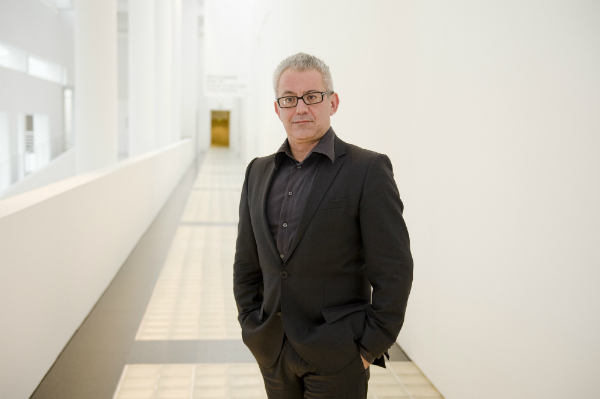
Photo: via El País.
Bartomeu Marí, the former director of Barcelona’s MACBA museum, who resigned from his post after a censorship controversy last spring, is currently the top finalist for the directorship of South Korea’s National Museum of Modern and Contemporary Art (MMCA), which has four branches across the country. But a group of over 600 artists, curators, and other art professionals from the South Korean community have raised their concerns about his possible appointment.
In a statement, entitled “Our Position on the Appointment of the New Director of MMCA, Seoul”—posted on Facebook and subsequently reported on in the Kyunghyang Shinmun—the group expresses concerns over Marí’s censorship of an artwork by Ines Doujak just before the opening of the exhibition “The Beast and the Sovereign” at the MACBA this part March.
The censorship provoked a huge international scandal that resulted in Marí’s departure. However, the disgraced director tried to have the last world despite the hugely averse climate, sacking the two curators of the exhibition, Valentín Roma and Paul B. Preciado, just before signing his own resignation. This triggered even more outrage and attracted criticism at an international level.
Ines Doujak, Not Dressed for Conquering
Photo via: Yahoo
The statement reads:
According to press coverage quoting officials in the South Korean Ministry of Culture, Sports, and Tourism (MCST), Bartomeu Marí, who was previously the director of the Barcelona Museum of Contemporary Art (Museu d’Art Contemporani de Barcelona; MACBA) and is currently the president of the International Committee for Museums and Collections of Modern Art (CiMAM) under the International Council of Museums (ICOM), appears to be the leading candidate for the directorship of the MMCA.
As has been widely publicized in the media, fierce debates on Marí’s censorship and ethical challenges as a curator are underway. Most recently, three board members of the CiMAM—Charles Esche (Director Van Abbemuseum, Eindhoven), Vasıf Kortun (Director of Research and Programs, SALT, Istanbul), and Abdellah Karroum (Director of Mathaf, Arab Museum of Modern Art, Doha)—resigned from the CiMAM board. In doing so, these three figures demanded Marí’s own resignation, declaring in their statement that his prior inappropriate and unethical decision to censor a politically sensitive artwork as the curator-director of the MACBA not only caused the CiMAM to lose credibility, but also violated curatorial and universal ethics. Over this course of events, voices in the international press highly critical of Marí’s censorship have spread throughout the global art world.
Charles Esche.
Photo: Braem Saeys.
The statement refers to the resignation of Esche, Kortun, and Karroum from the board of the CiMAM last week. “We resigned because we had an unresolvable disagreement with the majority of the board […] as there was never a vote of confidence in the president during our time on the board,” Esche told Hyperallergic. “After the censorship of Ines Doujak’s artwork at MACBA, we felt that the historic commitment of CIMAM to be a clear opponent of censorship by and in museums was compromised by the position its president had taken […].”
“We cannot help but raise suspicions on why the government is trying to appoint a figure who was, of all matters, at the center of a censorship scandal,” the group said elsewhere, while pointing out the increase in censorship in the South Korean cultural landscape of late:
This is the first time that figures from the South Korean art community have collectively spoken out on the appointment of the director of the MMCA. Indeed, this particular issue reflects the public’s awareness of the worsening crisis involving the freedom of expression and art in South Korea in recent years.
Chris Dercon
Photo: via eastwest.ba
Interestingly, it seems that it was Chris Dercon, Tate Modern’s outgoing director, who recommended the South Korean authorities to appoint a foreign director, as a way to broaden the scope of the museum. He also has defended Marí’s candidacy, who succeeded him as director of Rotterdam’s Witte de With Center for Contemporary Art in 1996.
“[Marí] knows Asian, Korean art very well—both modern avant-garde and new avant-garde,” Dercon told the Korean Herald. “I only know that he’s a very serious, very progressive and very dedicated curator and museum director who’s interested in many disciplines. He did very radical exhibitions, very well-researched exhibitions, that’s how I know him.”
But the South Korean art community seems to disagree:
We demand that both the MMCA and its overseeing body, the MCST, offer plausible explanations regarding the appointment of the new MMCA director and institute full-fledged reforms to protect and foster artistic freedom so they may perform the duties they were originally intended as proponents of the arts. Until the resolution of the issues outlined above, we will continue to take action, and will issue another series of statements to follow this initial statement.